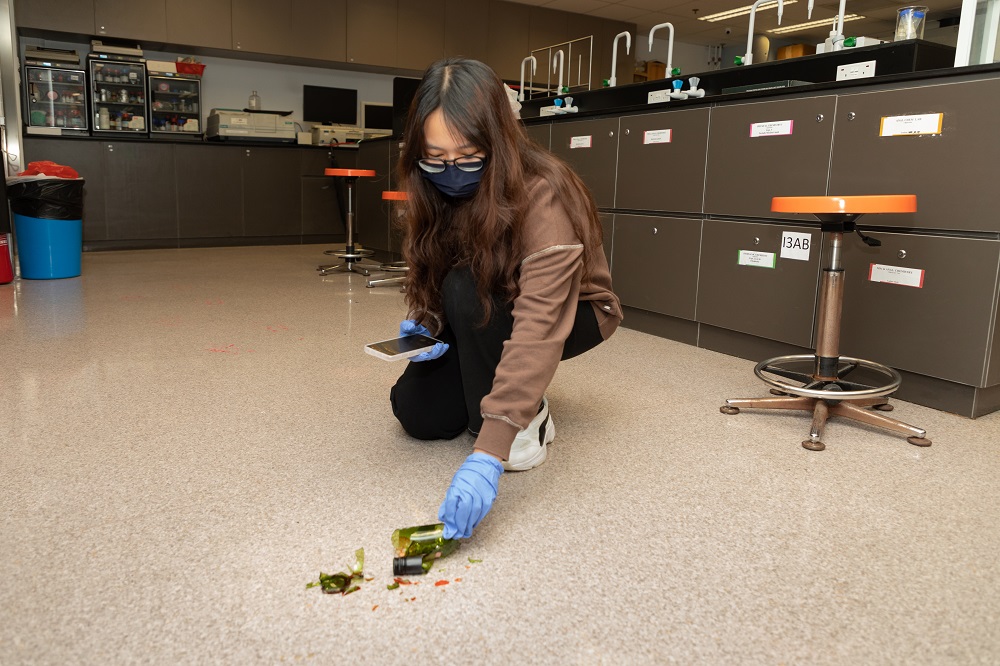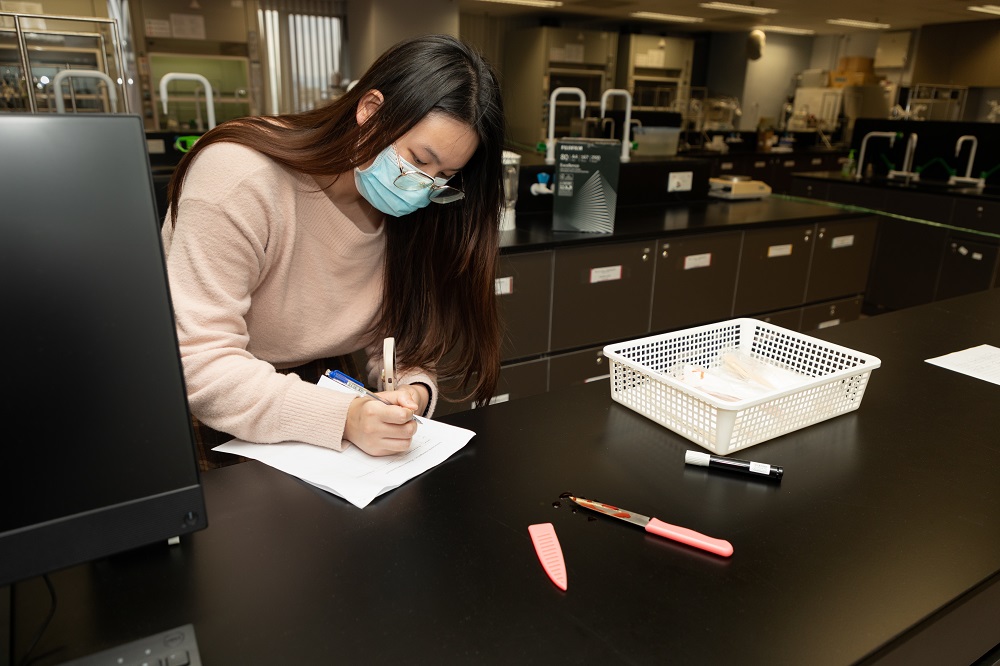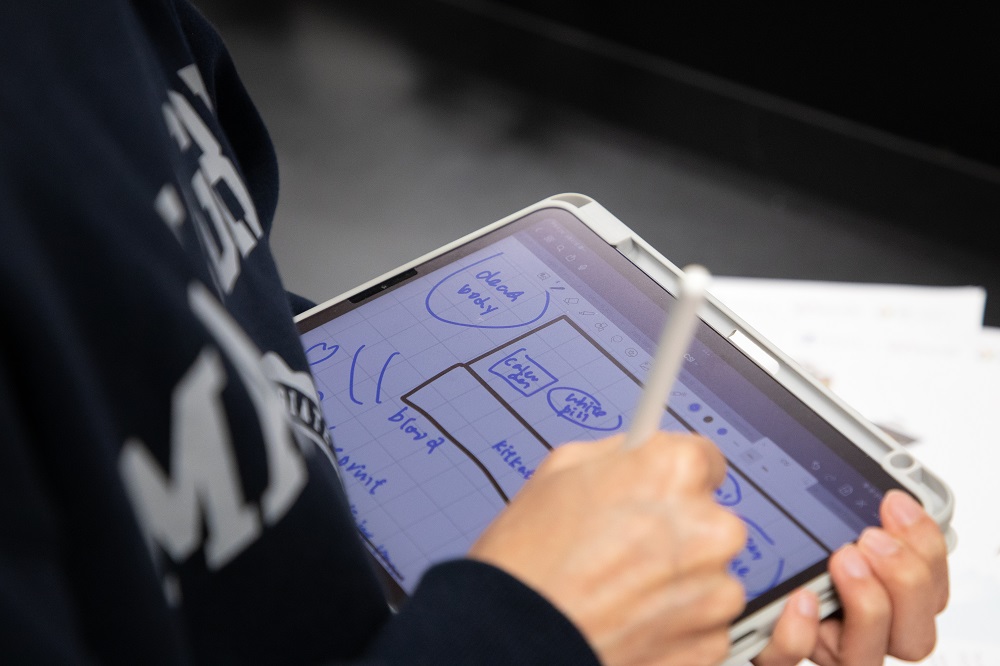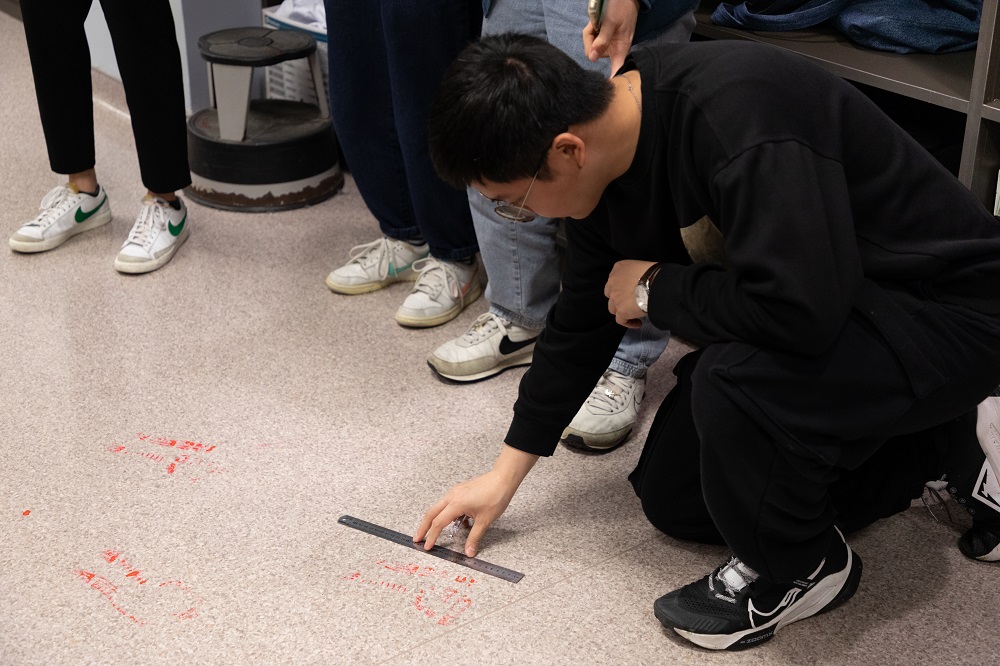Discover HKBU
Uncovering the truth with analytical science
25 Apr 2023
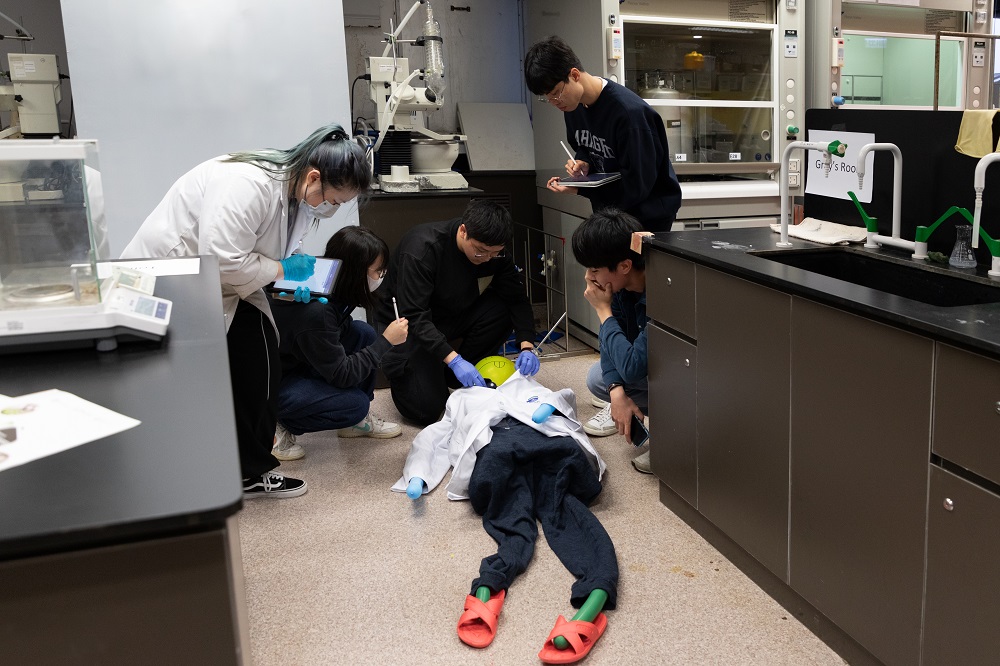

As seen in courtroom dramas, forensic chemists are often called upon to explain what was found in crime scenes and how they reached their conclusions based on the test results. Recently, a group of HKBU students got a taste of what it’s like to work as a forensic chemist, as they identified and analysed the evidence collected from a crime scene.
The "crime scene" was staged at a laboratory on campus, where students of the course Forensic Analytical Chemistry worked in groups and examined exhibits such as glass fragments, powder, and bloodstains. They then employed analytical techniques to characterise the evidence as part of the process of solving a crime.
The innovative course is the brainchild of Dr Gray Ho, Senior Lecturer of the Department of Chemistry and Director of Bachelor of Science (Hons) in Analytical and Testing Sciences (ATS) programme. “The goal of this course is to challenge students to interpret a crime scene and implement scientific methodologies in the forensic process, so they can learn how to recover and present evidence which are crucial to solving a crime,” says Dr Ho.
Practising through simulated crime scene
He adds that it is important for students who may have their head buried in the books to get into the laboratories. “Our course is designed to provide students with the opportunity to apply what they’ve learnt. Through the simulated crime scene on campus, students can practise how to process a crime scene like a forensic chemist would in real life. This in turn helps them consolidate their learning,” he says.
From uncovering evidence to drawing impartial conclusions, students gain valuable hands-on learning experience while developing their analytical thinking as well as presentation skills. Yan Liu, a Year 4 student, says, “When our group arrived at the crime scene, we needed to prioritise the evidence collection and document the scene. Compared to laboratory work where there are clear objectives, investigating a crime scene is more about exploring the unknown.”
Mimi Ma, also a Year 4 student, agrees. “It was a refreshing experience to encounter a crime scene. We have to pay attention to details, which might just be the clues to solving the case. The situation is also relatable to our everyday life, and that makes the class more engaging.”
The unsung heroes who keep the world safe
In addition to the forensic course, other courses in the ATS programme also combine theory and practice to give students the knowledge and skills to excel in the field of analytical and testing science.
“We see, use and benefit from analytical and testing science every day, from the analysis and inspection of food and medicines, to the daily monitoring of air and water quality as well as the analysis of construction materials,” Dr Ho says.
Analytical scientists and technicians are working to help solve problems of critical importance, and they are often the unsung heroes. In our multi-device world, analysis, testing and certification help ensure product quality and safety, which is crucial for product development. Analytical scientists and chemists also play an extremely important role in the advancement of modern medicine and public health. For instance, laboratory scientists run tests which help doctors and healthcare professionals make medical decisions, and their work is essential during the COVID-19 pandemic era.
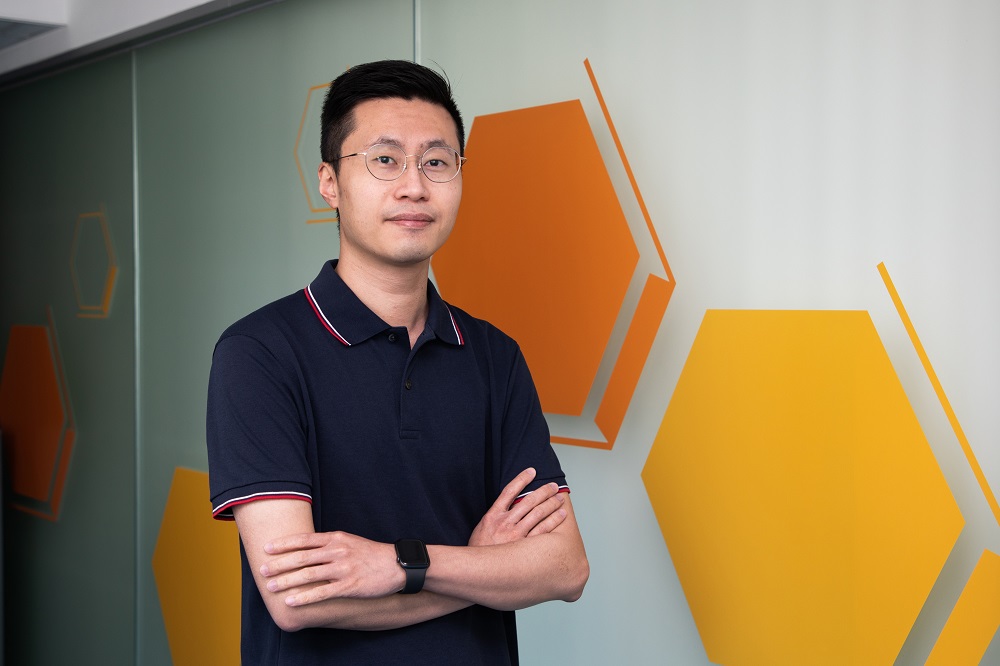

In a multidisciplinary approach, the ATS programme at HKBU provides students with the knowledge of different scientific disciplines including chemistry, physics and biology, and hands-on experiences with the instruments used in the testing and certification sector. Choo Yeonhui, an international student from South Korea, says, “We are not only studying Chemistry, but also other scientific disciplines, making the programme more diversified and interesting. The opportunity to carry out laboratory work has been a great experience, and it shows how principles taught in lectures can be put to use.”
The programme is a recognised qualification by the Hong Kong Association for Testing, Inspection, and Certification, and graduates can adopt an accelerated pathway towards the professional qualification of Certified Testing Professional in Chemical Testing. Besides opting to work in analytical science, research and quality assurance, graduates also benefit from acquiring analytical and logical thinking skills, which are transferable to a wide range of careers including business and finance.
Dr Ho believes that the testing and certification sector in Hong Kong will continue to flourish. “Besides supporting the medical, food and construction industries, the sector also provides testing and inspection services for consumer products manufactured in Hong Kong and mainland China, contributing to the economic development of our city as well as the region,” he says. “When students understand how their work could safeguard people’s health, wellbeing and interest, it gives them a sense of mission.”
